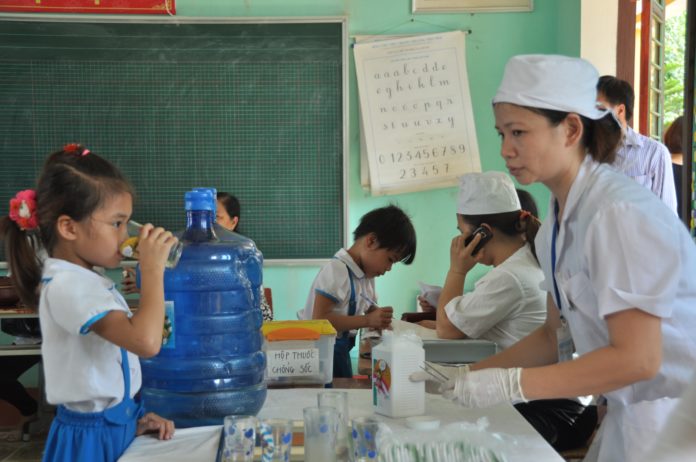No major differences between the gut bacteria of people infected with roundworm or hookworm and uninfected peers, finds study
A new study has identified no major differences between the microbiomes of people infected with roundworm or hookworm and uninfected peers. Researchers found no evidence that curing either of these infections with albendazole treatment has a harmful effect on the microbiome. The study was published in mBio, the journal of the American Society for Microbiology.
“We don’t see any evidence suggesting deworming programs should be concerned about negative effects on the gut microbiome of curing hookworm or roundworm,” said lead study author Alice Easton, PhD, who performed the research while working in the Laboratory of Parasitic Diseases, at the National Institute of Allergy and Infectious Diseases.
Parasitic worm infections are common in the developing world including India. According to World Health Organization, 241 million children between the ages of 1 and 14 years are at risk of parasitic intestinal worms in India, also known as Soil-Transmitted Helminths (STH). Worms which are transmitted through soil contaminated with faecal matter are called soil-transmitted helminths (Intestinal parasitic worms). The worms which most commonly infect people are roundworm (Ascaris lumbricoides), whipworm (Trichuris trichiura) and hookworms (Necator americanus and Ancylostoma duodenale). Worm infections can lead to anemia, malnutrition, abdominal pain, intestinal obstruction, stunted growth or impaired mental and physical & development and reduced school participation.
The National Deworming Day (NDD) is conducted on February 10 each year in India to deworm all preschool and school-age children between the ages of 1-19 years through the platform of schools and Anganwadi Centers to reduce the burden of the STHs.
NDD is bi-annual round of deworming in states where prevalence of STH infection is more than 20% and annual in others with less than 20% prevalence. Only two States namely Rajasthan and Madhya Pradesh have reported less than 20% prevalence and are recommended for annual round. The program was launched in February 2015, and 26.68 crore children have been administered albendazole till February 2018. Under another initiative, called the ‘Swachh Bharat Abhiyan’ (launched in 2014), over nine crore toilets have been constructed in India till January 2019, to overcome the problem of open-defecation in rural India.
The researchers found no difference at pre-treatment or in the study between people with and without parasitic worms
The study aimed to examine the impact of deworming on the gut microbiome, since India and many African countries have national deworming programs.
The investigators examined the gut microbiome of individuals with and without worm infections treated with the deworming medication albendazole and followed up three weeks and three months post-treatment. They used samples collected in Kenya as part of a larger study to examine differences in stool microbiota reflecting gut microbiome changes. Stool samples were analyzed for the presence of eight species of intestinal parasites.
The researchers found no difference at pre-treatment or in the study between people with and without parasitic worms.
“We see an increase in clostridia following hookworm cure, but it’s worth pointing out that Clostridium difficile was not something we saw a change in. Nothing changed that we could clearly associate with the people being worse off,” said Dr. Easton.


